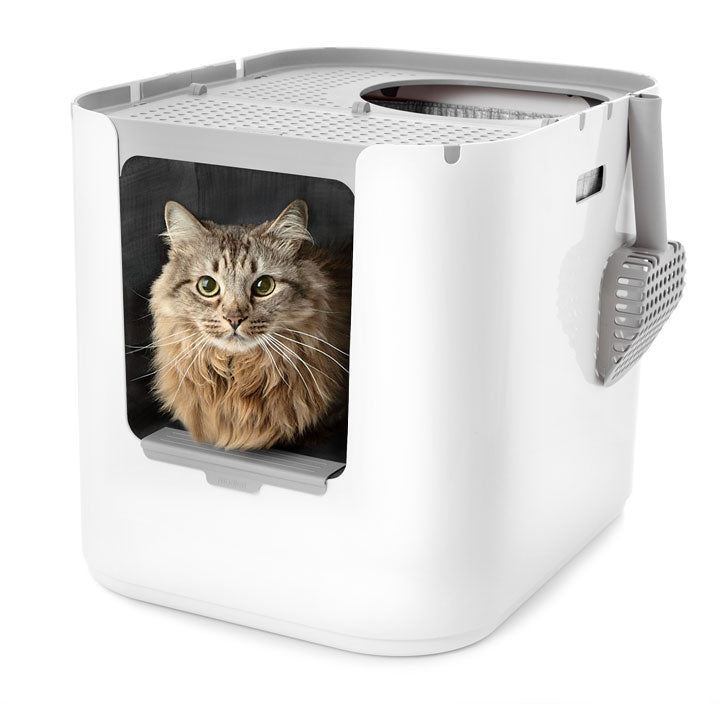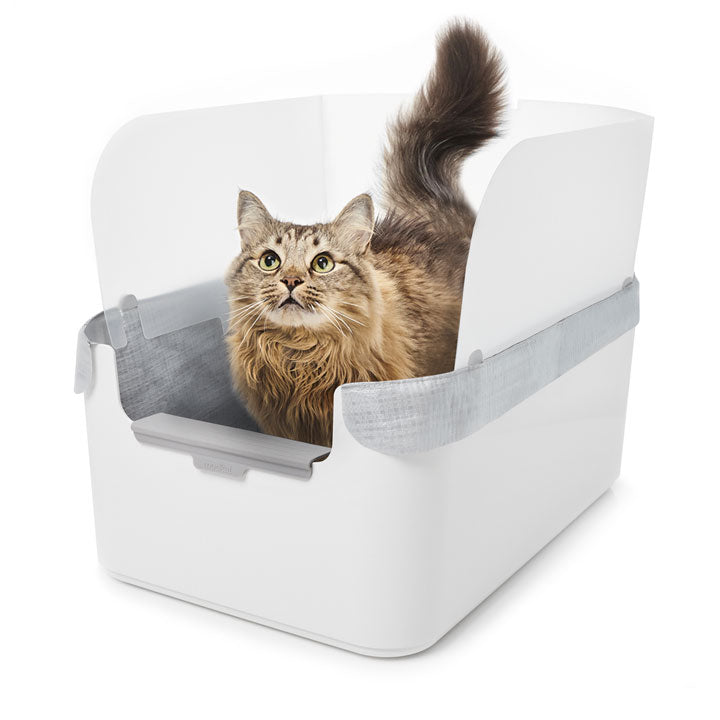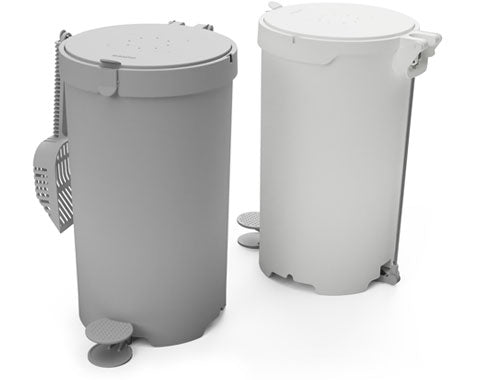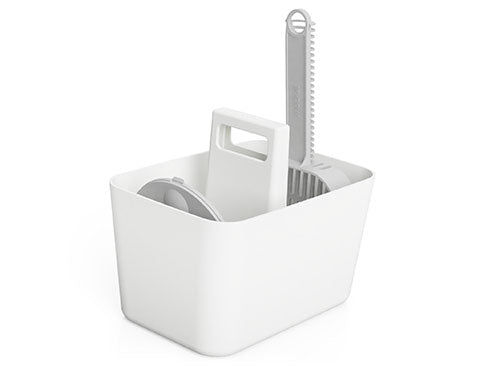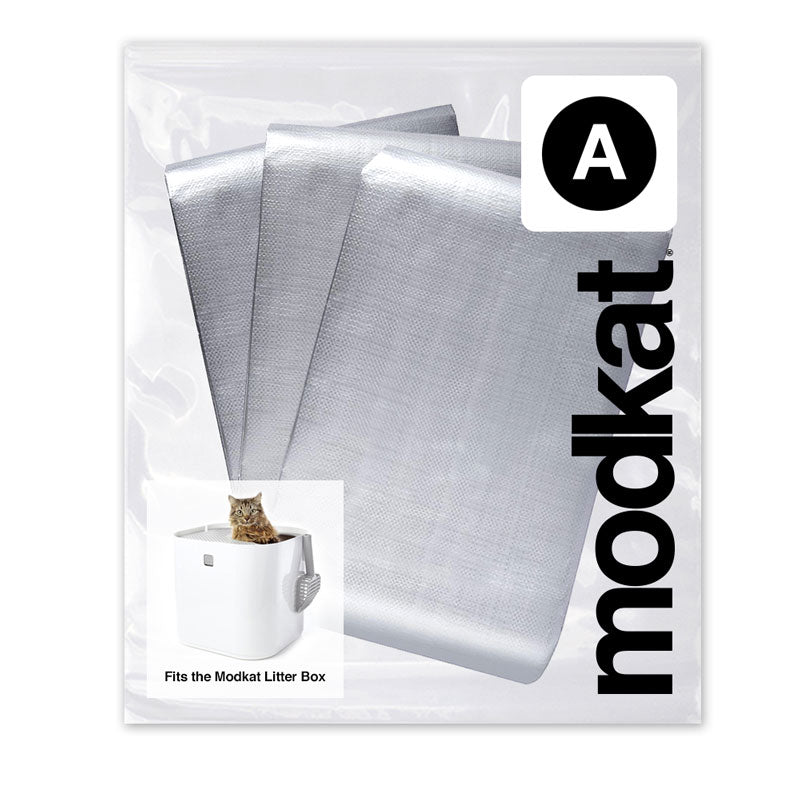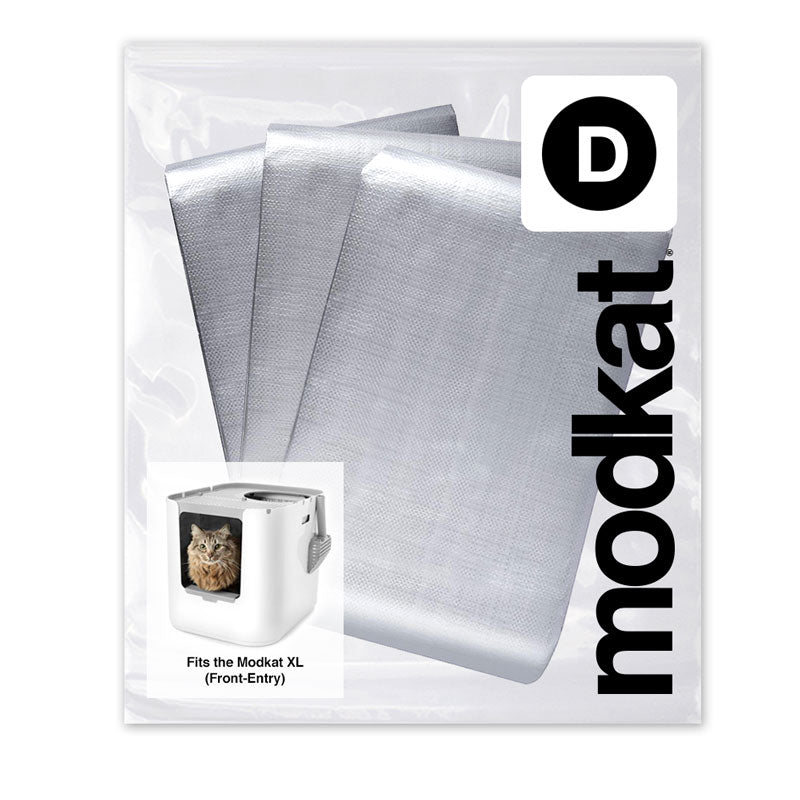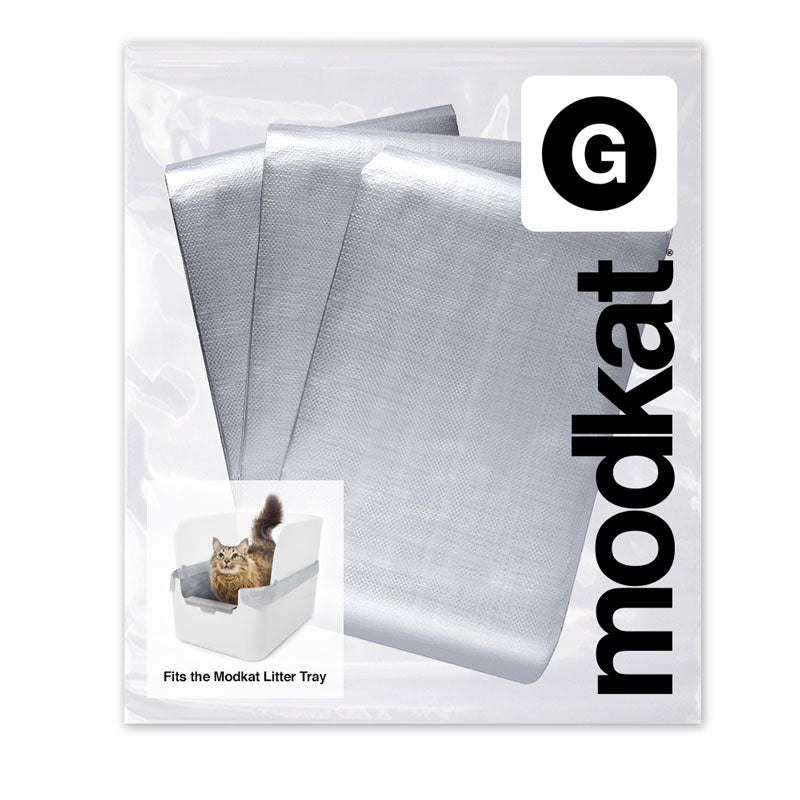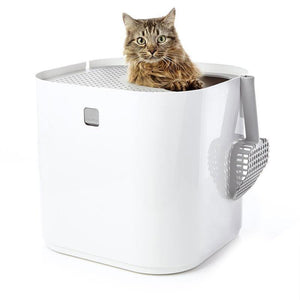Litter Boxes
Accessories
Liners
Cats under stress.

Your cat gets stressed out, too. Sure, they might not be working from home under quarantine or filing for disaster relief loans. But even in the best home environments, cat stress can keep your feline friends from being healthy and happy.
What causes stress in cats? How do they react to stress? And what can you do to create a stress-free environment for your cats?
What causes stress in cats?
Boredom
Cats get bored! As one of the most intelligent animals on the earth, cats experience a whole range of emotions. When they don’t have enough stimulating activities to do, cats get bored just like people. A lack of stimulation could manifest as stress, and they might take this out on your furniture.
Too much competition
Unlike dogs, cats, by nature, are solitary animals. This causes issues in multi-cat households. It is possible to socialize cats with each other in a multi-cat environment. However, instinct is a powerful driving factor: your cat will never be quite as at ease when they are when left alone.
If there are too many cats at your house living in close quarters, they may become stressed because of greater perceived competition for territory, for food, and even for access to the litter box.
Visits outside the house
Periodically, you’ll have to take your cat out to the veterinarian or for a grooming visit. These are typically infrequent occurrences, but that’s exactly the problem. Cats are most comfortable in familiar environments. When you take your cat outside your house, you’re forcing them to leave their territory, which can create a considerable amount of stress.
Loud noises
Cats are natural-born hunters. This means that they have an excellent sense of hearing. The trouble with this, though, is that they’re quite sensitive to loud noises. If you live in a noisy environment — near traffic or with loud music playing, for example, the high decibel levels can stress out your cat. The noise probably stresses you out, too!
What are signs of stress in cats?
It’s not easy to tell when your cat is stressed out. The behavior patterns of a stressed-out cat are often confused for a minor illness or just general crankiness. If you see one or a combination of these factors and if you can readily identify stress factors in and around your home, there’s a good chance your cat is stressed:
- Your cat might have diarrhea or other irregular elimination symptoms.
- Your cat might get overly clingy.
- Your cat might try to hide from people.
- Your cat might engage in over-grooming to the point that bald spots appear .
Every cat is unique, and you know your cat better than anyone else. Your kitty might not exhibit any of these symptoms, or on the contrary, they might show all of these at the same time. You know your cat’s behavior patterns.
If you believe your cat might be stressed, carefully consider their environment to try and identify anything that could be acting as a stressor. If your cat is exhibiting symptoms such as diarrhea that could point to more serious issues, it’s also a good idea to take them for a check-up at the vet’s. Infections and diseases are stressors, too. If the vet gives your cat a clean bill of health, it’s very likely that the symptoms they’re experiencing are stress-related.
What to do if your cat is stressed
Eliminate or reduce sources of noise.
Make sure to eliminate any sources of loud noise. This can be a challenge if you’re living in a noisy environment. If you’re committed to managing your cat’s stress levels, you might need to invest in some level of sound-proofing, especially if long-term construction work is going on near your house. It’ll help with your stress levels, too!
Make sure that there are enough food and water bowls to go around.
This is especially important in a multi-cat or multi-animal household. Competition, perceived or genuine, is a key cause of stress in cats. If you ensure that every cat and household animal has its own food and water bowls, your cat won’t feel as stressed from potential competition over food and water.
Ensure your cat gets adequate play time.
To alleviate boredom, make sure your cat gets enough quality play time. Ensure that scratching posts are available in every room for your cat to scratch on without taking out your furniture. You might also want to invest in toys to keep your cat occupied.
Conclusion
Cats get stressed just like people do. However, the underlying reasons — and the way they show stress — are very different. One secret to a healthy and happy cat is to understand and manage cat stress. 🐈
“It looks nicer than any other hooded or open option we considered.”

Purrr News.
Join our email list and get exclusive access to new products, the best cat litter box health articles, and 10% off your first order!
Similar products related to this blog:
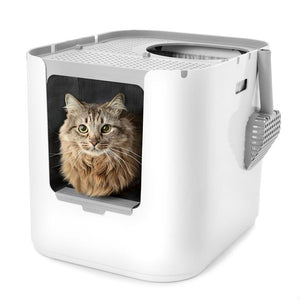
"It looks nicer than any other hooded or open option we considered."

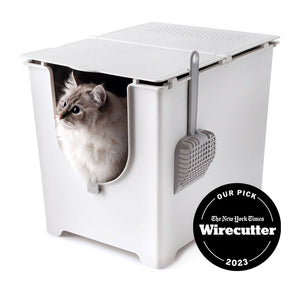
"This litter box keeps everything in, nothing gets out the sides."
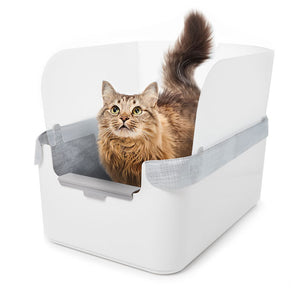
"My beautiful ragdoll cat and I both love the new Modkat Litter tray!"

